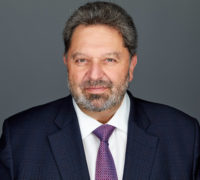Indeed, the Wallenberg’s strong sense of purpose is grounded in social responsibility that is captured in the Swedish word landsgagneliga, which translates loosely as “for the benefit of the country”.
“It’s a way to give back, to really have the possibility to support Swedish society,” Wallenberg said. “The family has been very focused on working for Sweden and with Sweden over the years, so it suits our way – and the way we think about ourselves.”
“Our way” revolves around a personal sense of duty but also deep commitment. “When the three of us grew up, the older generation always said that just because your name is Wallenberg, you shouldn’t believe that you have a place because you really have to perform and you have to work,” he said.
The combination of hard work and social responsibility has produced more than a dozen foundations over the years that today funnel more than $200m a year into a variety of research projects and research organizations involved in science and education – all with a clear objective to help the development and competitiveness of Sweden.
Twenty years ago, for example, Wallenberg foundations backed research into genomics, then and now one of the critical areas at the frontiers of scientific investigation. Two themes that the foundations have focused on and that have the potential to revolutionize the course of human development are artificial intelligence and autonomous systems, including self-driving vehicles, smart transportation systems, and cloud infrastructure.
Prioritizing digitization and sustainability
Identifying such areas of focus requires long-term vision. But how does that approach translate to the world of business?
Wallenberg says taking the long view is important because it facilitates innovation, which he considers central to succeeding in two areas that he believes will help determine societal and corporate success in the coming years – digitization and sustainability.
On the first, he says that the rapid uptake of digitization during the lockdowns due to COVID-19 is just scratching the surface. “There are so many more things that we could do to improve our offering and to make our operations more efficient,” he said. “And that, in turn, demands that companies change their business model to operate in a different way vis-à-vis customers and suppliers.”
YouTube

 Podcast available
Podcast available

